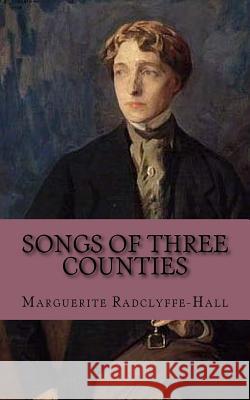Songs of three Counties » książka
Songs of three Counties
ISBN-13: 9781543166842 / Angielski / Miękka / 2017 / 62 str.
INTRODUCTION WITH as much grace as if a monoplanist should attempt to write a preface to a book on flying for an albatross, so may a writer of mere prose attempt to pen an introduction to a book of poetry. The bird and man both use the air, but with a difference. So do the poet and the man of prose use pen and ink. Familiarity with tools, used in two branches of one art (or trade), is apt to prove a snare. Music and poetry, the most ethereal of the arts upon the face of them, are in a way more mathematical than prose, for both have formulae. Hence, their appeal goes quicker to men's minds, and oversteps countries and languages to some degree, and makes it difficult to write about them. Of late, young poets, those who have bulked the largest in the public eye, those that the world has hailed as modern, have often been obscure. What is modernity? To be modern is to touch the senses of the age you write for. To me, a fool who owns a motor-car is just as great a fool as was a fool of the stone age. The only true modernity is talent, and Lucian of Samosata was as modern to the full as Guy de Maupassant. The poet for whose verses I am writing this my introduction, preface, foreword, call it what you will, is one of those whose meaning he who runs may read. Does she do well in making herself clear? I think so, for though there are those who prefer a mist of words, holding apparently that poetry should be written in Chinook, or Malagasy, this opinion must of necessity be of the nature of what Ben Jonson called a "humour." Few men to-day read Eupheus and fewer Gongora. Yet in their time their concepts were considered to be fine flowers of poetry. Those who wrote so that all men could understand, as Sapho, Campion, Jorge Maurique, Petrarca, Villon, and their fellow-singers in the celestial spheres where poets sing, crowned with the bays of the approval of countless generations, all wrote clearly. Their verses all were clear as is the water running over chalk in a south country trout-stream, such as the Itchin or the Test. I take two specimens of Miss Radclyffe-Hall's poetry to illustrate what I have said. She writes of a blind ploughman, whose prayer is to his friend to set him in the sun. "Turn my face towards the East And praise be to God."
Zawartość książki może nie spełniać oczekiwań – reklamacje nie obejmują treści, która mogła nie być redakcyjnie ani merytorycznie opracowana.











